The World Environment Day just passed by and people are becoming increasingly aware of the stark effects of plastic pollution. School children are aware of the effect of plastic pollution on our ocean and marine lives. They know more than ever the effects of burning plastic on human health. Steps to beat plastic pollution have become daily conservation points in many casual settings.
We felt it's the best time to showcase some positive stories that are standing tall in the midst of many stories of despair and gloom. Yes, we can Beat Plastic Pollution and the solutions is within OUR grasps.
Watch this video to understand the effects of Plastic Pollution in India.
Civic agencies in most cities are grappling with thousands of tons of waste generated everyday and plastic pollution has become an existential crisis of sorts for many animals on land and in water. But, if that doesn't make you wring your heart in despair, perhaps this would: Many plastic products contain hazardous chemicals that can leach to the surroundings - and directly affect human health. Here's a quick list: (Source:http://iciscenter.org/plastics-and-their-impacts-on-human-health/)
Phthalates
Uses: Present in PVC plastics typically used for various containers e.g. for food and beverages, and hard packaging, medical tubing, and bags, toys, traces have been found in PETE plastic bottles.
Exposure: Direct contact with plastics, bottled water, tap water, air and food
Potential health effects: Endocrine disruption, cancer, obesity, ADHD, allergies, diabetes…
Exposure: Direct contact with plastics, bottled water, tap water, air and food
Potential health effects: Endocrine disruption, cancer, obesity, ADHD, allergies, diabetes…
Bisphenol A (BPA)
Uses: Containers such as baby and water bottles, sports equipment, CDs, and DVDs, lining water pipes, coatings on the inside of many food and beverage cans, thermal paper such as sales receipts.
Exposure: Human exposure is through diet (leaching from food and beverage containers), exposure can also occur through air and through skin absorption.
Potential health effects: An endocrine disruptor that can mimic estrogen having potentially adverse effects on the liver and kidney and effects on the mammary glands as well as heart disease, diabetes and child behaviour.
Exposure: Human exposure is through diet (leaching from food and beverage containers), exposure can also occur through air and through skin absorption.
Potential health effects: An endocrine disruptor that can mimic estrogen having potentially adverse effects on the liver and kidney and effects on the mammary glands as well as heart disease, diabetes and child behaviour.
Heavy metals
Uses: Lead, cadmium, chromium, mercury, bromine, tin, antimony and other heavy metals are or have been added to polymers as pigments, fillers, UV stabilizers, and flame retardants (source).
Exposure: During waste disposal either by incineration or by placing it in a landfill, toxic metals released from plastics can enter atmosphere or leach into soil (source).
Potential health effects: Children’s exposure primary concern as certain metals cause impacts on nervous system (lead), mental development (mercury) and kidney disfunction (cadmium) amongst many other effects caused by other heavy metals (source).
Exposure: During waste disposal either by incineration or by placing it in a landfill, toxic metals released from plastics can enter atmosphere or leach into soil (source).
Potential health effects: Children’s exposure primary concern as certain metals cause impacts on nervous system (lead), mental development (mercury) and kidney disfunction (cadmium) amongst many other effects caused by other heavy metals (source).
Dioxins
Byproduct of industrial activites and plastic burning/ lanfilling.Exposure: More than 90% of human exposure is through food, mainly meat and dairy products, fish and shellfish and through the air.Potential health effects: can cause reproductive and developmental problems, damage the immune system, interfere with hormones and also cause cancer.
The list is but a few of myriad plastic based pollutants that exist in our environment today, but they need to be watched very carefully. Now that we know it, shall a quick look at how to kick the habit: Reduce, Reuse, Refuse & Recycle. Not just a slogan, but the new mantra for a plastic-free life.
Here are some heart warming examples of people who are setting an example in sustainability and giving hope to the Scary situation which we have got ourselves into.
Kalyana Mahaganapathy temple in Bangalore has been in the news for making their premises Zero Waste two years ago by composting all their organic waste in-house. They have gone one step further and banned all single use disposables from entering their premises. They have a free lunch program every week and they only use reusable plates and glasses. They have realised that it is so easy to not generate garbage and have been following this principal diligently. Even the prasadam is offered in hand. People are encouraged to bring their own boxes if they want to take the prasadam home. Initially there was some resistance but a tough stand by the management has ensured excellent results.
Recently they organised a pooja in which many women of the community participated and lunch was served in brand new steel plates, glasses and spoons which the temple has procured for all functions in the temple. Most women brought their own bottles for water and washed their plates after lunch. Zero waste generated. Whatever little food waste was left over was added to their composting bins.


It's heartening when children lead the change. Here's an interesting Zero Waste Birthday organised for 8 year Nikki. She has learnt sustainability at a very young age and was completely on board with a Zero waste birthday party. In an age where parties mean hoards of plastic waste which includes decoration, gift wrappers, gifts and disposable cutlery, Nikki’s party was refreshingly green.
Reusable cutlery was used. the caterer was instructed to bring food only in steel containers with steel plates and spoons, Return gifts were themed on SAY NO TO THE BIG 4 - each child receive a reusable mug and a reusbale bag - replacements for plastic water bottles, paper and plastic cups, plastic straws & plastic bags - and the B'day girl explained at length about it!
Her invite explicitly mentioned - No gift, only Rs. 150/-. She collected a whooping 3500 Rs. from her friends to buy herself a tent, to play with her friends. She simply did away with dealing with the mounts of plastic gift wraps she was sure to have received!
No, it wasn't a dull birthday party at all! Children enjoyed the party with a dance game on the play station and decorated their own cup cakes. Hope more children emulate Nikki and make their celebrations zero waste.



The last story is that of a running group which lives by the mantra of sustainability. Runners high is a running group which trains people to run. They have always used steel glasses for all their water stops. They carpool extensively to reduce the number of vehicles on road. Members who carpool efficiently are recognised and presented with a cash prize.
Every year they organise a charity run named Anandayana which means the journey of joy, which hosts more than 1000 runners. The run is literally a journey of joy to everyone including planet earth.
The running bibs are made of cloth and people are encouraged to drop off their used bibs and safety pins to be recycled and reused the next year. Breakfast is provided in reusable cutlery. Aid stations provide water and electoral in steel glasses and moreover everything is washed in a natural bioenzyme which is a chemical free natural cleaner made of citrus peels. There is hardly any waste generated. The food waste goes into a pit for composting. It is truly heartening to see that this policy of sustainability is repeated year after year with no compromise.


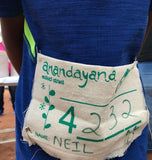
When we see passionate people like the ones in our stories, we see a glimmer of hope among all the stark images that bombard us every day. Living a zero waste life is the most easiest thing to do. All we need is the will to make a pact with ourselves.
Vani Murthy, Guru and inspiration to most green souls has shared the picture her essential kit with us. She does not step out of the house without them.
A steel water bottle, cloth bag for water, steel plate, spoon and glass, a napkin to wipe them and a steel straw too. If Vani can do it, we can do it too!

We often do not recognize the plastic hazards in our daily lives - those dirty diapers and disposable sanitary pads. Improper disposal - land filling, burning and throwing into open spaces & water bodies are all causing immense environmental damage. But increasingly, awareness is growing and people are moving away from disposables. The Period Love #BleedGreen campaign focus on such awareness. When the Padman Challenge broke loose on social media, many chose to post about their journey with cup and cloth as a retort! See the entire story here: https://bit.ly/2l1IFaK



Let us make a pledge on this environment day that we will do away with plastics and disposables and live a Zero waste life.
Picture Credits:
Ashok Betraj
Seema Das
Sukla C
Vani murthy
Arshi’s
Blog by: Anupama Harish

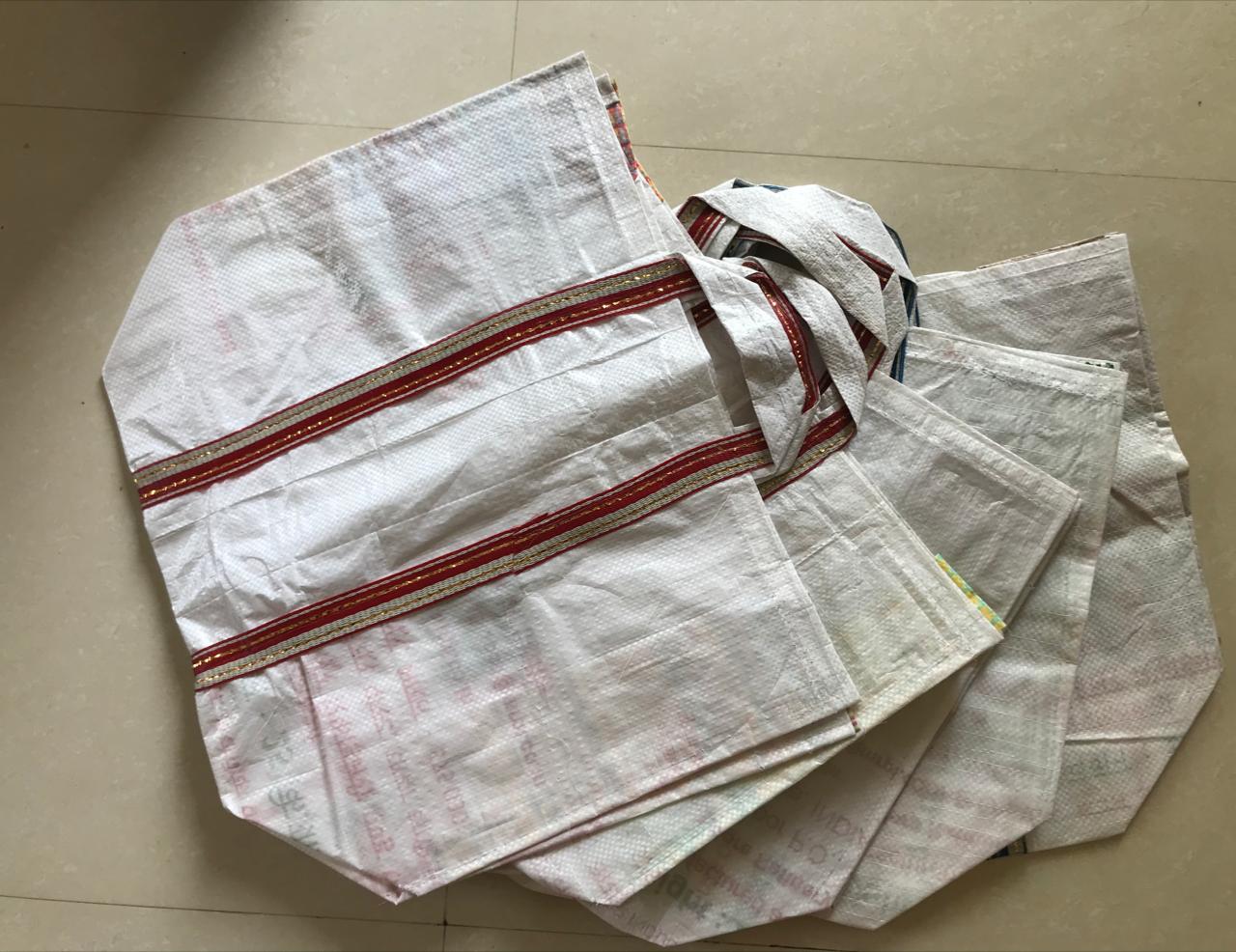
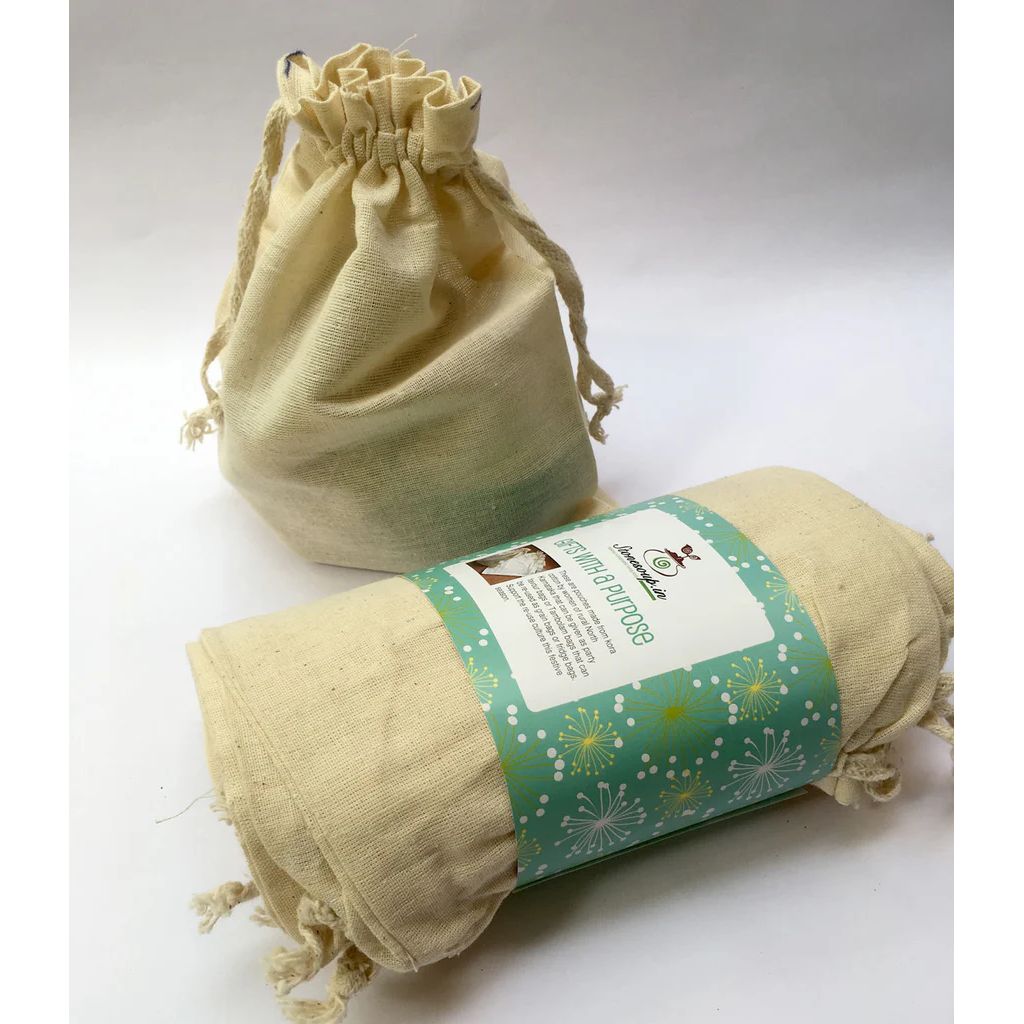
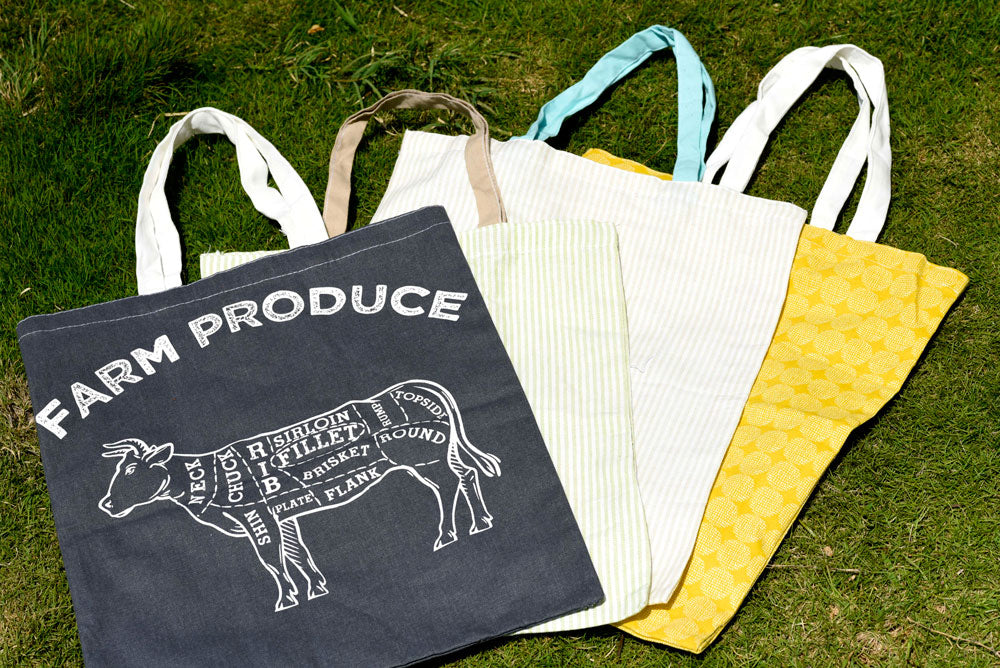
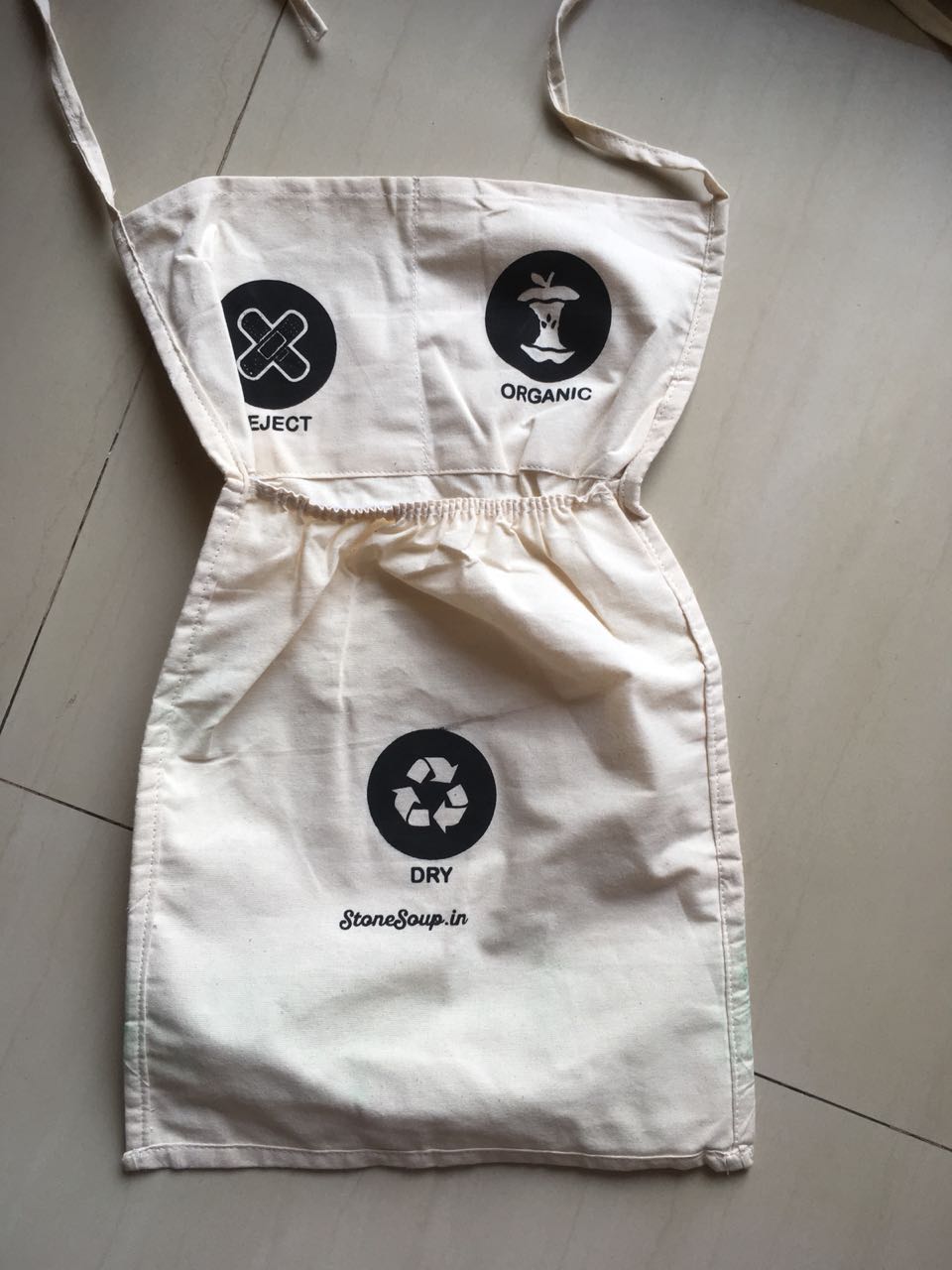
Great Post !! I agree with your point that these little things has great impact on our lives